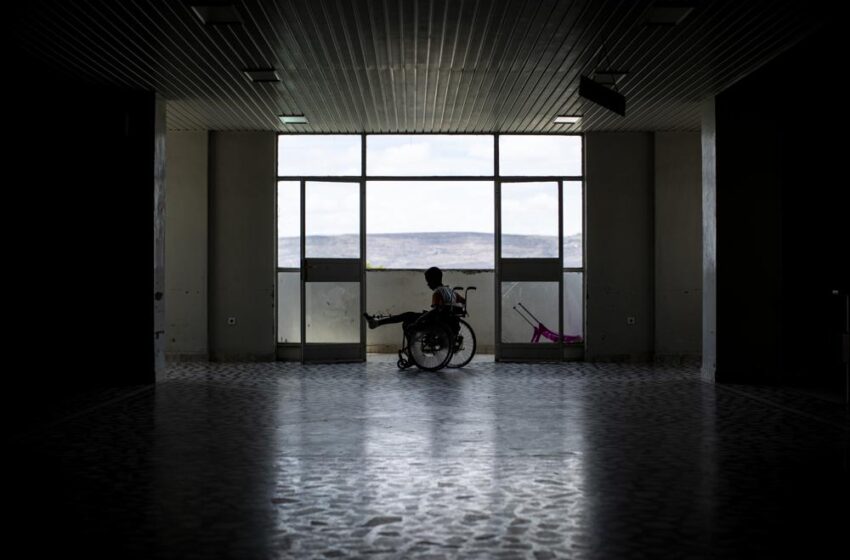
Hospital in Ethiopia’s Tigray struggles to treat patients
Source: AP News
Patients at the flagship hospital in Ethiopia’s embattled Tigray region are dying amid shortages of life-saving drugs and oxygen, according to health officials.
At least 60 patients with kidney disease have died since July, the result of a lack of supplies needed for regular dialysis, a doctor at Ayder Hospital in Mekele, Tigray’s capital, told the Associated Press.
Another 81 patients have died “directly because of a lack of oxygen” since the conflict between the federal government and the Tigray People’s Liberation Front, or TPLF, erupted in Nov. 2020, the doctor said.
The doctor spoke on the condition of anonymity for fear of reprisals.
Tigray, in northern Ethiopia, has been cut off from the rest of the country since the TPLF recaptured most of the region in late June. Its road networks, banking services and phone lines are all severed, a situation the United Nations has described as a “de facto blockade” imposed by Ethiopia’s federal government.
Ethiopian authorities didn’t respond to a request for comment on dwindling supplies at Mekele’s Ayder Hospital. The institution is a federal teaching hospital, meaning the education ministry in Addis Ababa, the federal capital is responsible for allocating its budget.
The hospital’s 3,600 staff have not been paid for months and many do not have enough money to buy food, hospital officials said, highlighting challenges that reflect a wider humanitarian crisis in the region.
More than 90% of Tigray’s 6 million people require humanitarian assistance, including 115,000 children who are severely malnourished, according to U.N. figures.
Some shortages have been alleviated by aid flights operated by the World Health Organization and the International Committee of the Red Cross, which have flown in 438 metric tonnes (482 tons) of medical and nutrition supplies since late January.

But these supplies represent just 4% of what’s required, according to experts.
As a result, staff at Ayder Hospital say they have resorted to washing and reusing surgical gloves and treating patients with expired medicines. They are also recycling plastic breathing tubes and items used for dialysis.
“This is really risky for the patients; they can die of infections and other complications,” said the doctor. “Doctors elsewhere in the world would be shocked to hear we are doing this.”
The hospital also has been forced to cancel surgeries because of power cuts and a lack of supplies. Some services have been forced to close altogether, including the cancer center, which has treated 1,769 patients since Nov. 2020 but has now run out of drugs for chemotherapy.
“Since July we received no chemotherapy drugs at all,” he said. “We just tell the cancer patients to go back home and they die. There is nothing we can do for them.”

A surgeon at the hospital, who also asked not to be named for safety reasons, said the stock of intravenous fluids has run so low that colleagues have resorted to making their own using “different chemicals” from the hospital’s store.
“It is not ideal,” the surgeon said. “It means when patients go into shock, you can’t resuscitate them. It is so frustrating. You need to insert an IV line and give fluids, but there are no fluids.”
He said shortages are so dire that some patients’ relatives must personally buy medicines from private pharmacies at inflated prices and bring them to the hospital before their family members can be treated.
Patients with kidney disease are currently receiving dialysis once a week, down from three times a week before the war, while the hospital is unable to admit new patients with kidney disease due to a lack of supplies, the doctor said.
Ethiopian authorities declared an immediate humanitarian truce on March 24, a move they said would allow aid to enter Tigray. But since then just one convoy of 20 aid trucks and one fuel tanker have entered Tigray, far short of the 100 trucks the U.N. says must enter every day to meet the region’s needs.
Tens of thousands of people have been killed in the war, according to estimates by international aid groups.
But there is little hope for peace talks as Ethiopian authorities have outlawed the TPLF, effectively making its leaders fugitives on the run.

